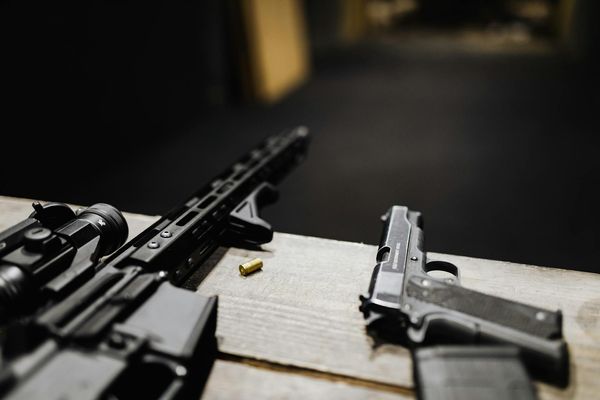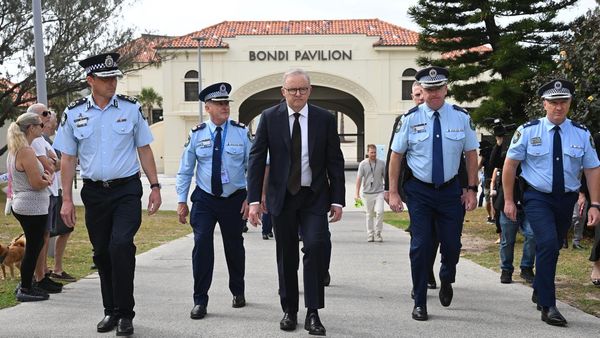
Chicago’s new inspector general said Thursday she has no intention of “staying in her lane” and complained the process that culminated in her appointment took way too long and needs to be accelerated.
Now locked into a four-year term, Deborah Witzburg has the freedom to speak her mind — and she took it during a wide-ranging interview with the Chicago Sun-Times on the day after the unanimous City Council vote confirming her appointment.
It started when Witzburg was asked about the statement from Mayor Lori Lightfoot that raised eyebrows during what turned out to be a marathon selection process.
After clashing repeatedly with longtime Inspector General Joe Ferguson and ultimately forcing him out, Lightfoot said she was looking for a successor who understood “the importance of staying in their lane.”
“I learned to drive in Boston and I have always understood lane markers to just be suggestions,” Witzburg said Thursday.
“I will do everything in my power to ensure that [the Office of the Inspector General] occupies every corner of its legal mandate. I did not back down from difficult questions as public safety deputy and I will not back down as IG.”
Witzburg was undaunted when asked what will happen if Lightfoot is as embarrassed and unnerved by her investigations and audits as she was with Ferguson’s.
“If city officials feel warm and fuzzy about the watchdog, the watchdog is probably not entirely doing their job,” she said.
“Where there are those opportunities to work together, I will take them. So long as and whenever they do not compromise the independence of the office.”
The process of choosing Witzburg left Chicago without a permanent inspector general for nearly eight months.
The void was exacerbated by Witzburg’s decision to resign as deputy inspector general for public safety to avoid being accused of “pulling punches” while pursuing the top job.
Witzburg said the way the process played out exposed “a few shortcomings” in how the law is written.
“We need that process to happen faster. We needed to get started sooner. We need it be more transparent. And we probably need to change the provision ... which makes the term of the deputy IG for public safety co-terminus with the term of the appointing IG. That kind of automatic vacuum in leadership is really problematic,” she said.
Under Witzburg’s leadership, the public safety section did a series of high-profile audits and reports sharply critical of the Chicago Police Department and Lightfoot.
Those reports targeted everything from the error-filled gang database and the slow walk toward compliance with a federal consent decree to a ShotSpotter contract that, Witzburg contended, rarely leads to investigatory stops or evidence of gun crimes and can change the way officers interact with areas they’re charged with patrolling.
Even more damning and embarrassing to the mayor was the inspector general’s blistering critique of CPD’s handling of civil unrest in 2020 that devolved into two devastating rounds of looting.
On Thursday, Witzburg argued that “both violent crime and the state of police oversight” are at a “crucible moment” — and “you can’t do one without the other.”
“This is not a choice between reform and law-and-order. This is reforming a police department so that it can keep people safe,” she said.
To help rebuild shattered trust between citizens and police, Witzburg said she plans to start by shining the light on a police investigative and disciplinary system she described as “enormously complex” with an alphabet soup of agencies.
“It is byzantine and I am really looking forward to continuing our work in de-mystifying that — both for members of the department and members of the public,” she said.
“If we had an investigative and disciplinary system in which people had reason to have confidence, that would go a long way toward a world in which we had a better relationship between the police department and the community it serves.”
With demoralized police officers now retiring faster than the city can hired their replacements, Witzburg said it’s more important than ever for CPD to lift the veil on — and stop the “opaqueness” surrounding — police staffing decisions.
“Staffing is a critical piece of the overtime question. We need the right number of members — both civilian and sworn — in the right places in the department. And we need transparency around how those staffing decisions are made,” the inspector general said.
Witzburg said it is “harder than it should be” to find out how many officers are assigned and where. Too often, the city has withheld the information as “privileged.”
“We’ve seen ... a number of kind of back-and-forth decisions about whether members will be allocated to districts or assigned to citywide teams and how we make those decisions. We need a plan for staffing the police department in a way that is effective,” she said.







